How this vegetarian, no-alcohol restaurant has India cheering ‘Burma Burma’
As Burma Burma completes close to a decade in India and draws up plans for the future, here’s the story behind the origin of the Burmese restaurant.
In India, Burmese food is usually synonymous with the elaborate one-pot meal, khow suey.
Going beyond this conventional fare, childhood friends Ankit Gupta and Chirag Chhajer founded the speciality Burmese restaurant and tea room ‘Burma Burma' in 2014.
The restaurant–which offers a whole range of Burmese fare–opened its doors, nearly a decade ago, to experimental foodies at Mumbai’s art and culture district, Kala Ghoda. Today, Burma Burma has eight outlets across India, in the cities of Delhi, Mumbai, Gurugram, Kolkata, Bengaluru and Ahmedabad.
On the sidelines of the launch of its latest outpost in Ahmedabad, YS Life spoke to Gupta to understand the philosophy of Burma Burma and how it all began.
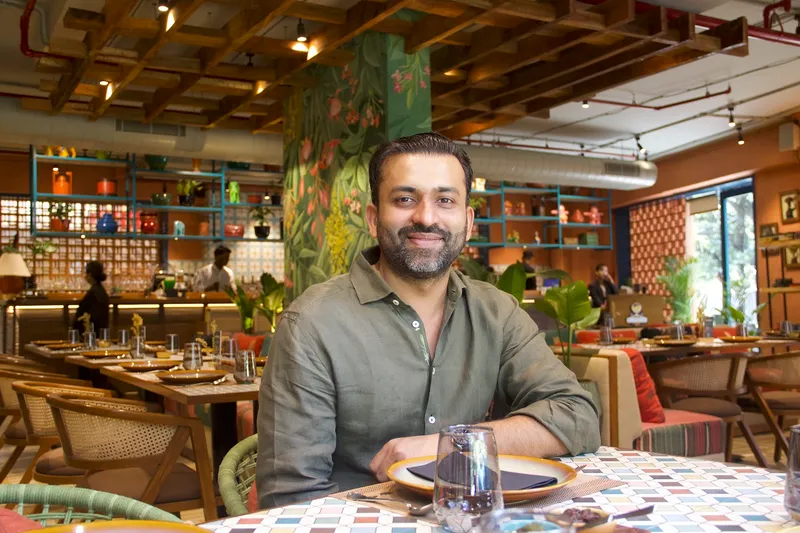
Ankit Gupta, Co-founder and Managing Director of Burma Burma | Image by: Saina Jayapal
Going unconventional
Growing up in Mumbai, Gupta realised that Burmese food was not widely available in restaurants in India and wanted to start a speciality restaurant that would expose Indians to the diversity of Burmese vegetarian food.
When Gupta and Chhajer decided to start a vegetarian Burmese restaurant with no alcohol, they knew the stakes were high. Nevertheless, they gave it a shot, and, since then, there has been no looking back.
“We didn’t want to keep non-vegetarian food because the fermented fish sauce that Burmese use is strong and overpowering. The Burmese also follow the Buddhist lent for which they abstain from meat and alcohol for four months a year. Hence, a lot of their dishes are indigenously vegetarian,” explains Gupta.
Burma Burma was packed to the hilt on the day of its opening, with reservations booked for at least 18 days. This trend has stayed on.
“We were clear about establishing a casual dining restaurant that had an evolved menu and beverage programme where the turnaround time is less than 90 minutes (from start to finish). This maximises our revenue. Also, we always wanted to be placed in premium locations with large footfalls,” explains Chhajer, who takes care of business development.
The restaurant chain is present in upscale locations such as DLF CyberHub (Gurugram), Select Citywalk (Delhi) and Rex Mall (Bengaluru).
In November 2022, Burma Burma raised its first external funding of $2.1 million in a seed round led by Negen Capital.
Back to the roots
Burma Burma’s origin can be traced back to Gupta’s mother’s Burmese roots.
At a young age, Gupta was exposed to the myriad flavours of Burmese cuisine, thanks to his mother who had spent over two decades in Myanmar (formerly known as Burma). She made Burmese food regularly at home.
He particularly relished the tea leaf salad, made with lahpet or laphet (fermented tea leaves). Even now, Gupta digs into the salad at least twice a week.
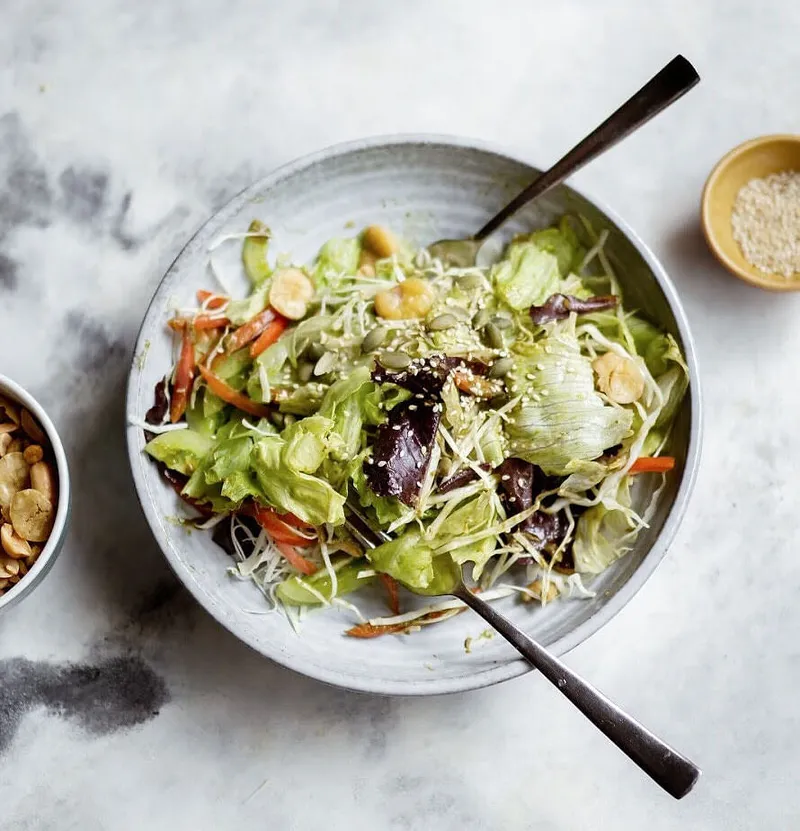
Tea leaf salad at Burma Burma
“We would also have raw mango salad with raw papaya, crunchy peanuts, and roasted ground flour. Burmese salted candies were also a big part of my childhood. They had a taste of different spices made from plum, gooseberries, or similar ingredients,” says Gupta.
Gupta was also introduced to other elements of Burmese culture–his uncles were always dressed in longyis (a piece of cloth worn around the waist) at home, and their houses were adorned with textile-rich artefacts from Myanmar.
Alongside, his interest in hospitality was kindled by his father and grandfather, who had migrated to Mumbai in the 1960s from Haryana and set up four licensed tea stalls in Santacruz. Over time, his grandfather and father also established a few hotels and a restaurant in Mumbai.
Armed with a degree in hospitality and hotel administration, Gupta worked as a management trainee at Taj Mahal, Mumbai before joining his family business to understand the tricks of the trade.
With a desire to open a Burmese speciality restaurant, Gupta undertook his first visit to Myanmar in 2011. He travelled across Mandalay, Yangon and Sagaing, eating at homes of friends and family, exploring street food culture across the country, and visiting local markets to source ingredients.
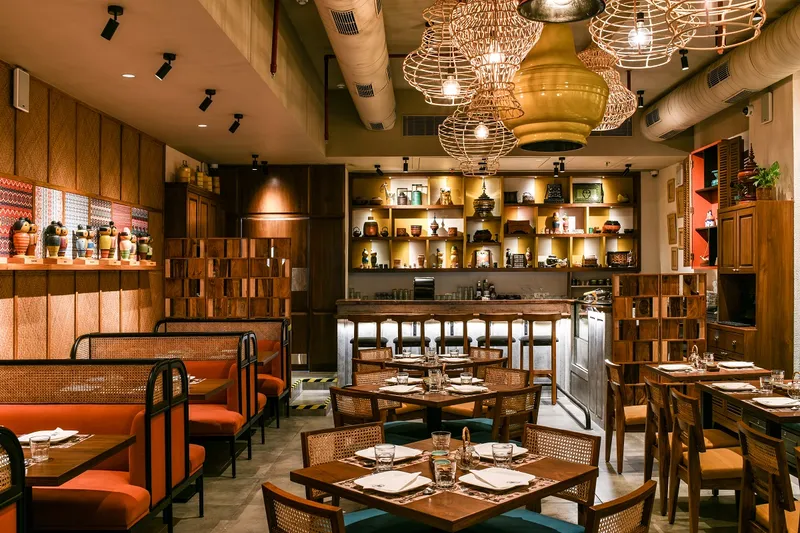
The Burma Burma outpost in Saket, Delhi
Hauling recipes and extensive research, he returned to India and got in touch with his childhood friend Chhajer, who was involved in his family-run textile trading company. In 2013, Gupta and Chhajer founded Burma Burma’s parent company, Hunger Pangs Pvt Ltd.
Thereafter, Gupta made more visits to Burma to become acquainted with local stakeholders–from chefs to artisans.
“This helped me ensure all elements were in place to offer a well-rounded experience to the restaurant’s future patrons,” he explains.
Thus began the journey of Burma Burma.
A wide menu
The food at Burma Burma is like no other, integrating Burmese tradition with contemporary presentation.
While the first menu at the Kala Ghoda outpost largely comprised Gupta’s family recipes, the menu today is a wider reflection of Burma’s culture–including village traditions and tribal cooking methods.
Burma Burma’s menu also has an array of mock meats and mushrooms that have a texture similar to that of non-vegetarian dishes.
The restaurant’s new menu, launched in July, is the brainchild of Gupta and Chef Ansab Khan, after their recent research visit to Myanmar. It includes a variety of small plates–crunchy shiitake fingers, taro and tempeh pan-seared bao, and soba noodles with tea leaf pesto. The mains consist of Mandalay noodle bowls and smoked chilli rice bowls.
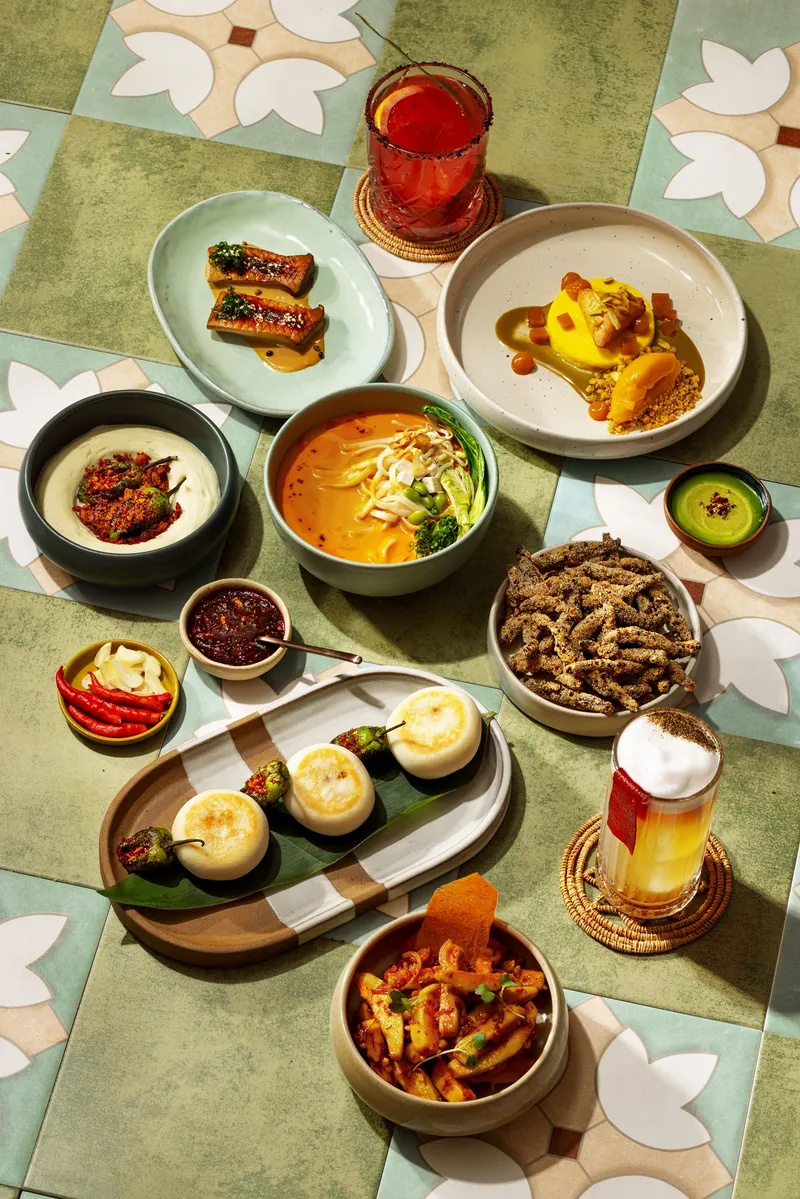
The new menu at Burma Burma features a variety of small plates, such as crunchy shiitake fingers, taro and tempeh pan-seared bao, and soba noodles with tea leaf pesto. | Image by: Assad Dadan
Burma Burma also has a tea room that offers a wide variety of teas, bubble teas, coolers, and kombuchas.
Expansion plans
After making waves in Mumbai, the duo opened outlets in all four zones of the country, gaining acceptance wherever they went.
Burma Burma is all set to open an outlet in Hyderabad soon. Two more outlets are coming up in Bengaluru and Mumbai in the next few months. The plan is to expand to 20 outlets by March 2025.
Besides its dine-in experience, Burma Burma is also a popular takeout choice for patrons.
In 2021, Gupta launched Burma Burma Pantry–a D2C venture that brings Burmese cuisine and culture to Indian kitchens through a range of ingredients and ready-to-cook mixes. Some of its popular offerings are lotus stem chips, khow suey curry paste, and malar stir fry sauce.
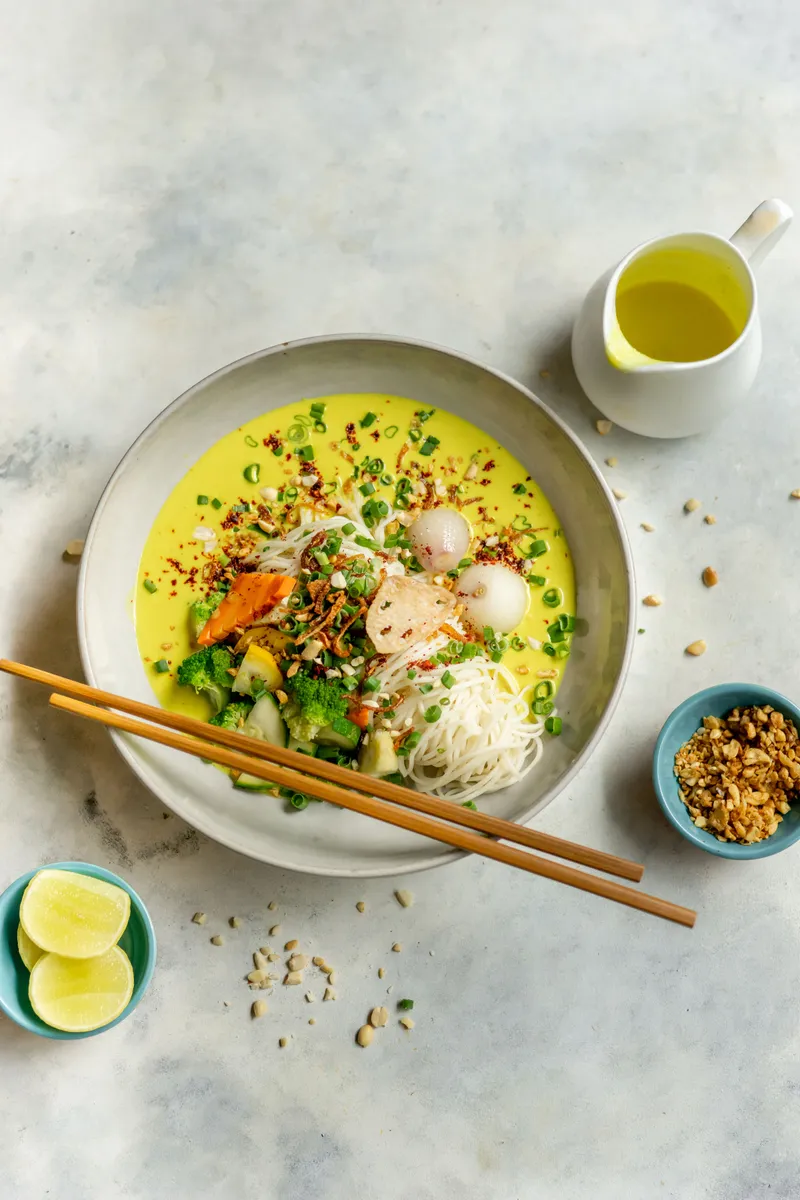
The Oh No Khowsuey Noodles at Burma Burma
Following an overwhelming response to these products, the brand launched a range of artisanal ice creams in flavours such as pineapple, dark chocolate and olive oil, avocado and honey, honeycomb and sweet corn, and durian fruit.
It also launched a range of recycled cotton and polyester T-shirts this year. Designed by Rushil Bhatnagar, these T-shirts with slogans such as ‘state of mind, melting’ and ‘above ordinary, beyond usual’ have been exclusively created to celebrate Burma Burma’s new range of nostalgic artisanal ice creams.
YS Life recommends:
Food
- Crunchy shiitake fingers
- Mandalay noodle bowl
- Soba noodles with tea leaf pesto
Drinks
- Scarlet
- Paloma
- Peru lemonade
Edited by Swetha Kannan







